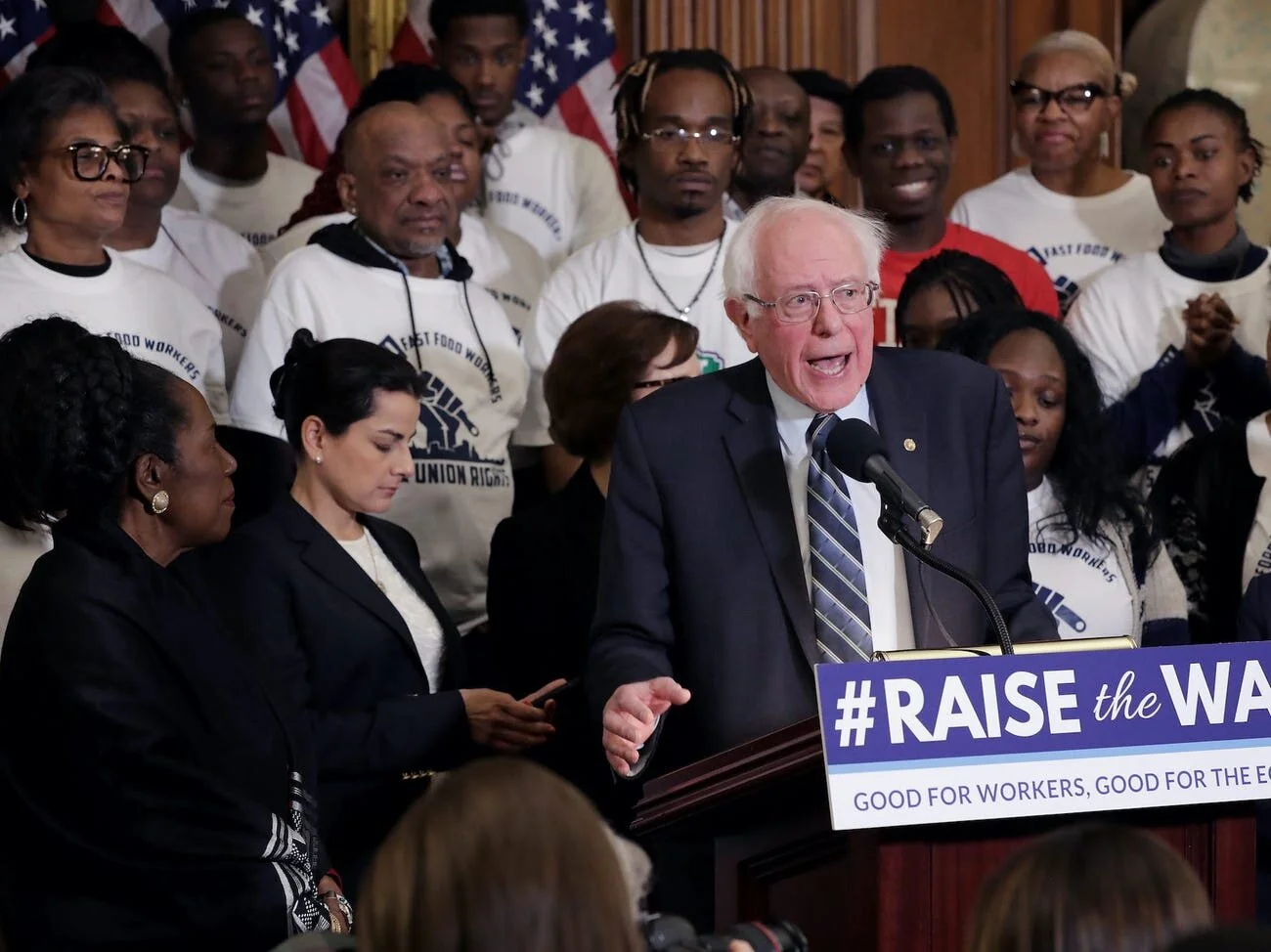The Arguments For and Against the Raise the Wage Act
Vermont Senator Bernie Sanders, chair of the Senate Budget Committee, introduced the Raise the Wage Act and has been one of its staunchest supporters. Source.
House Speaker Nancy Pelosi promised in last Thursday’s press conference that a $15 minimum wage would be included in the latest $1.9 trillion COVID-19 relief package. Democrats hope the bill will clear the House of Representatives by the end of February, but its fate in the Senate — particularly that of the $15 minimum wage — is still in question.
Part of the hesitation from Senate Democrats stems from a new report from the Congressional Budget Office (CBO) released on Feb. 8, which predicts that although the proposed minimum wage increase would lift 900,000 out of poverty, it would also put 1.7 million people out of work and increase the federal deficit by $54 billion. The CBO report forecasts enormous losses in the event the minimum wage is increased, but not all economists agree on their accuracy.
To start with, there seems to be some confusion among top economists about how the CBO (which doesn’t make its analysis methods public) calculated the figures in the report. Economic Policy Institute (EPI) Senior Economist Heidi Shierholz called the CBO’s findings on employment numbers “out there” and cited two recent studies by top economists from 2019 and 2021 respectively, both of which refute the CBO’s claims about the scale of employment loss from a minimum wage increase.
A critical report from the Roosevelt Institute, a political think tank, published the same day as the CBO’s findings, claims that the CBO is “overly optimistic that there will be a rapid [economic] recovery in the next two years,” (without taking into account any additional economic stimulus that may be passed by the federal government) as well as “needlessly pessimistic about the potential for long term growth” and “disturbingly complacent about a forecast that the economy will not reach what they consider full employment and potential output until 2025.”
While a swathe of research studies find that negative outcomes from a minimum wage increase have likely been exaggerated in the CBO’s report, on-the-ground reporting has a negative outlook more in line with what the CBO predicts.
A recent survey conducted by CNBC found that one-third of small business owners anticipate laying off workers if the federal minimum wage rises, and only 54% of small business owners support the $15 minimum wage. The survey findings are partially split along party lines — Republican small business owners were 33 percentage points more likely to say that raising the minimum wage would force them to lay off workers.
Interviews conducted by NPR back that up, revealing that in areas that already have a comparatively high minimum wage, either from state or city legislation, some small business owners have struggled to make crucial decisions about employment based on the limitations that minimum wage requirements put on their businesses.
The potential losses for workers in the restaurant industry are especially concerning, as part of the Raise the Wage Act, which includes the $15 minimum wage increase, also involves eliminating the tipped worker credit.
The tipped worker credit is a provision that allows restaurant owners to pay servers less than minimum wage with the expectation that they will make at least minimum wage or more than that from tips. The allowance requires that workers who do not make minimum wage from tips be paid the amount they fall short on to make up the difference, but many restaurant workers have never had a need for this provision, and have even exceeded the minimum wage by more than double in many cases.
Those in favor of eliminating the tipped worker credit point to the disparities it creates for People of Color, who consistently earn less in tips than white coworkers. Still, at a time when the restaurant industry is already struggling amidst the COVID-19 pandemic, fundamentally changing the established pay structure of the restaurant industry has made many restaurant workers and owners highly critical of the bill.
Although legislation to raise the minimum wage will be included in the latest COVID-19 relief package sent to the Senate, it is unlikely to pass into law. At least two Democratic senators are poised to play spoiler on the bill, which would likely need the support of all 50 senate Democrats to pass the Senate. Democrats haven’t fully given up on raising the minimum wage. When asked to comment on the likelihood of the Raise the Wage Act making it through Congress, Nancy Pelosi said that whatever happened in the Senate, Democrats wouldn’t stop trying to raise the minimum wage.

